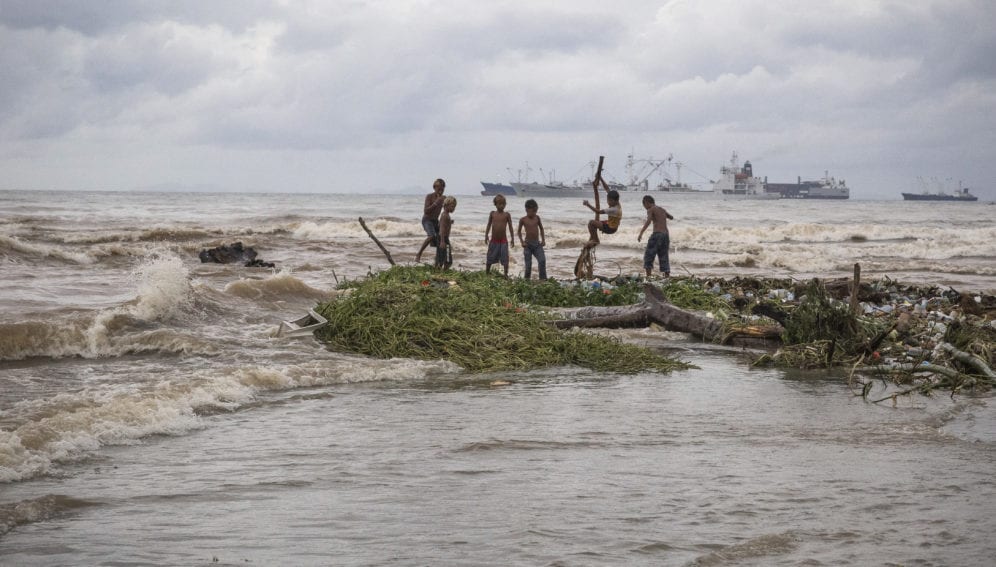By: Magali Reinert
Send to a friend
The details you provide on this page will not be used to send unsolicited email, and will not be sold to a 3rd party. See privacy policy.
[NOUMÉA] One of the voluntary commitments undertaken at the UN Ocean Conference held in New York in June was to accord the Pacific Ocean the same protective legal rights as individuals now enjoy.
“The objective is to draft by 2020 a convention on the rights of the Pacific Ocean open for signature for all countries,” says Victor David, a lawyer at the French Research Institute for Development (IRD), one of the four organisations leading the initiative.
The IRDcentre based in Nouméa (New Caledonia), the Secretariat of the Pacific Regional Environment Programme (SPREP), the NGO Conservation International, and the International Centre of Comparative Environmental Law took advantage of the UN conference to promote environmental policies that give more legal rights to nature.
“This is a very bold initiative which faces both political and legal challenges.”
Donald Rothwell, Australian National University
Granting legal rights to the Pacific Ocean allows lawsuits to be filed on behalf of ecosystems. “This means there is no longer a requirement to demonstrate personal human injury to protect and restore their (ecosystems’) health — a huge roadblock in environmental protection suits,” explains Michelle Bender of the Earth Law Center, a legal advocacy group andmember of the Global Alliance for the Rights of Nature.
The intergovernmentalorganisation SPREP will rally its state members in support of the proposed convention, says David. Multi-disciplinary and participative studies will identify the rights of the Pacific Ocean and the laws required to enforce them — the right to health, to be free of pollution and to not be overfished.
“This is a very bold initiative which faces both political and legal challenges. Nevertheless, the proposal is one which NGOs and scientific communities are well-placed to promote and advocate,” Donald Rothwell, professor of international law at the Australian National University tells SciDev.Net.
At the UN conference, Cook Islands Prime Minister Henry Puna said it was only natural to protect the ocean, which is “our provider, our sustainer, our life force. Yet we mistreat our ocean with pollution, overfishing and the impacts of climate change".
The Pacific Ocean is the most populated ocean (Pacific small islands count 2,355,000 inhabitants) and the Pacific states are culturally and economically dependent upon their marine environment, making the sustainability of their marine environment crucial for the region.The Pacific Ocean is already subject to the International Law of the Sea and a range of regional conventions and treaties. “As I understand it, this proposal would apply to all of the Pacific and also have a strong focus on the cultural rights of the region’s inhabitants. So, it would in principle be an advancement upon the existing frameworks,” says Rothwell.
“Also, because most of the Pacific is beyond national jurisdiction, an international agreement is needed to ensure the whole of the Ocean is managed sustainably for the benefit of the whole Earth community”, argues Bender.
This piece was produced by SciDev.Net’s Asia & Pacific desk.














